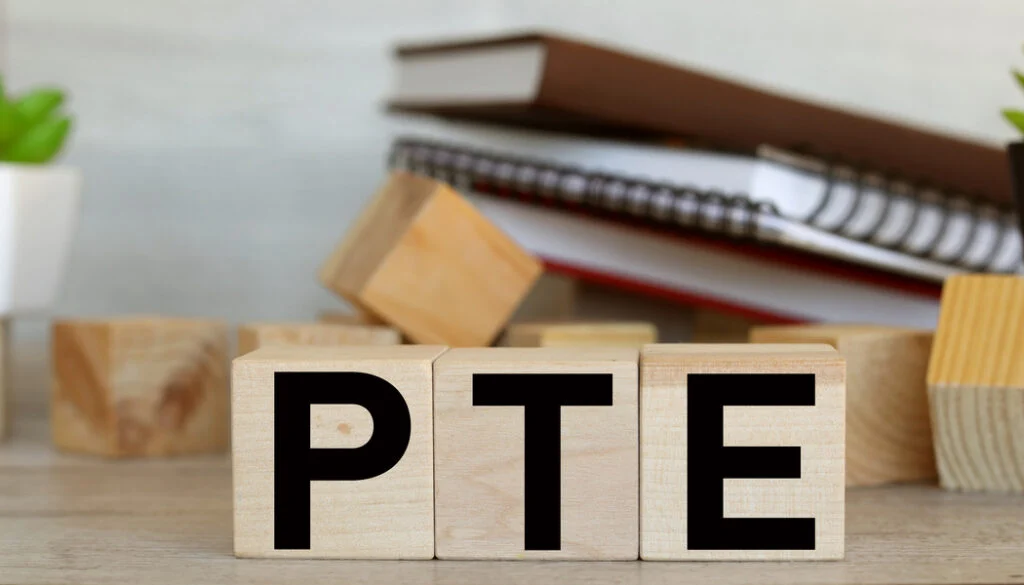The Pearson Test of English (PTE) is a globally recognized English proficiency test that assesses the reading, writing, listening, and speaking abilities of non-native English speakers. Whether you’re aiming for higher education, global migration, or a job in an English-speaking country, passing the PTE test can be a golden ticket. Its significance cannot be overstated, as it often serves as a gateway to opportunities and dreams.
Understand the Test Format

The PTE test is divided into three main sections: Speaking & Writing, Reading, and Listening. Each section has its unique set of tasks, designed to gauge your proficiency in different aspects of the English language. For instance, the Speaking & Writing section may require you to describe an image or write an essay, while the Reading section might present fill-in-the-blanks or multiple-choice questions. The Listening section, on the other hand, will test your ability to understand spoken English from various sources. The scoring criteria are multifaceted, considering factors like content, form, pronunciation, and grammar. Familiarizing yourself with the test format is the first step towards a high score.
Create a Study Schedule
A well-structured study plan is paramount. Without direction, even the most diligent students can find themselves lost. Start by assessing your current proficiency level. This will give you a clear picture of the areas that need more focus. Incorporate the PTR mock test from ptemocktests.com into your schedule to simulate the actual test environment. Set achievable goals for each week. For instance, you might decide to master two listening tasks in the first week, then move on to reading tasks in the next. Consistency is key; allocate specific hours each day to PTE preparation.
Gather Study Materials
Equip yourself with the right tools. Essential study materials include the Official Guide to PTE Academic and practice tests. These resources provide invaluable insights into the test format and types of questions you’ll encounter. Additionally, numerous online platforms offer free resources, tutorials, and sample questions. Websites like PTE Academic Practice Tests and E2Language can be particularly helpful.
Master Time Management

Time management is crucial in the PTE test, as you’ll be working against the clock. Here are some time management techniques for each section:
Speaking and Writing
Practice speaking fluently and coherently within the time limits.Use a structured approach for essay writing, allocating time for planning, writing, and revising.
Familiarize yourself with the question types to speed up your responses.Avoid spending too much time on a single question; if you’re unsure, move on and return later.Develop efficient note-taking techniques to capture key information.Listen actively and concentrate on the audio materials provided.
Maintaining a steady pace is essential to complete all questions within the allocated time. Remember that unanswered questions can impact your score negatively, so keep moving forward.
Focus on Speaking and Pronunciation
The speaking section of the PTE test assesses your ability to communicate clearly and effectively. Here are some tips to improve your speaking skills:
Practice Speaking Aloud: Regularly practice speaking English aloud. Engage in conversations, read articles, or record yourself to analyze your pronunciation and fluency.
Work on Pronunciation: Focus on enunciating words clearly. Listen to native speakers and mimic their pronunciation. Pay attention to stress and intonation patterns.
Use Vocabulary Effectively: Expand your vocabulary to express your ideas more precisely. Learn synonyms and use varied vocabulary in your responses.
Enhance Reading Comprehension

Effective reading comprehension is vital for success in the PTE test. Here’s how you can improve your reading skills:
Active Reading: When reading passages, engage actively with the text. Take notes, underline key points, and identify the main ideas and supporting details.
Diverse Reading Materials: Practice with a variety of texts, including academic articles, news stories, and literature. This will help you adapt to different writing styles and topics.
Time Management: As mentioned earlier, manage your time wisely during the reading section. Don’t spend too much time on a single question.
Hone Writing Skills
The writing section evaluates your ability to express ideas coherently and accurately in written English. Here are some tips to enhance your writing skills:
Organize Your Thoughts: Before writing, create an outline to structure your essay or response. Ensure a clear introduction, body, and conclusion.
Grammar and Vocabulary: Brush up on grammar rules and use a variety of sentence structures. Incorporate advanced vocabulary where appropriate.
Proofreading: Allocate time to proofread your written responses. Check for spelling, punctuation, and grammar errors. A well-edited essay demonstrates attention to detail.
Excel in Listening
The listening section assesses your ability to understand spoken English in various contexts. Here’s how to sharpen your listening skills:Listen to Different Accents: Exposure to a range of English accents is crucial. Listen to podcasts, news broadcasts, and movies featuring speakers from different regions.
Practice Active Listening: Develop the skill of active listening by taking notes during conversations or while watching videos. Focus on key details and main ideas.Practice with Audio Materials: Utilize PTE practice materials with audio components. Pay attention to the tone, speed, and nuances in the recordings.
Take Practice Tests

Mock tests are invaluable tools for PTE preparation. Here’s why they are essential:Mock tests replicate the actual PTE test conditions, helping you become familiar with the format, time constraints, and pressure. They also offer an opportunity to gauge your progress and identify areas that need improvement.
After each mock test, review your performance. Identify patterns of mistakes and areas where you excel. Use this information to fine-tune your study plan and focus on your weaknesses.
Conclusion
In conclusion, acing the PTE test is not an insurmountable challenge with the right preparation and mindset. Recognize the significance of this test in achieving your goals, whether they involve studying abroad, pursuing a career, or immigration. Armed with a well-structured study plan, the right study materials, effective time management, and a focus on core skills, you can approach the PTE test with confidence and emerge victorious. Remember, preparation is the key to success, and with dedication and perseverance, you can achieve the PTE score you desire. Good luck on your journey to PTE success!

